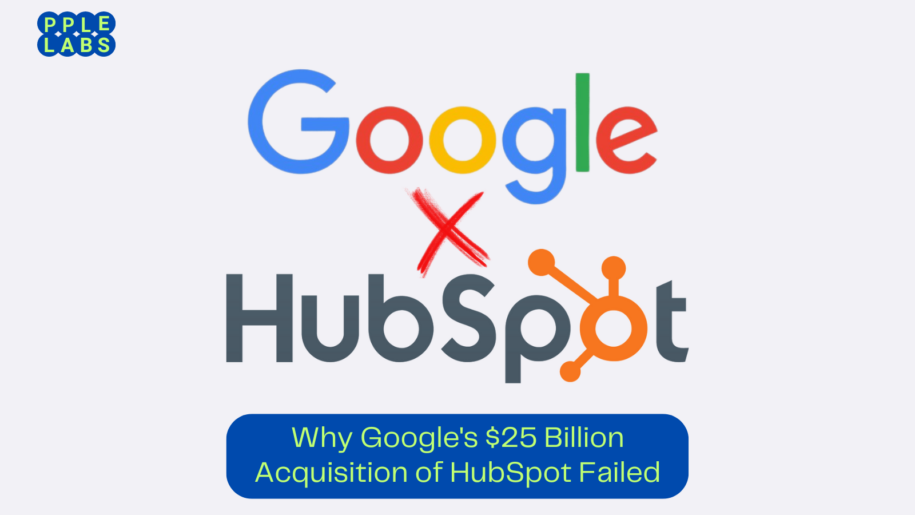In a significant move, Google parent company Alphabet considered acquiring HubSpot for $25 billion. This potential acquisition, however, did not materialize. Let’s dive into why Google walked away from what could have been its largest acquisition ever.
Background of the Acquisition Talks
Initial reports in April revealed that Alphabet was in talks with advisers about a possible takeover of HubSpot, a company valued at around $25 billion. HubSpot, known for its inbound marketing software aimed at small and medium-sized businesses, seemed like a strategic fit for Google’s expanding portfolio.
Initial Market Reactions
When news of the potential acquisition broke, the market reacted swiftly. HubSpot’s shares saw a significant dip, closing 12% lower, while Alphabet’s shares edged up by 1.2%. This mixed reaction highlighted both the potential benefits and the uncertainties surrounding the deal. According to Investopedia, HubSpot’s shares finished down about 12%, leaving them down some 10% year-to-date.
Reasons for the Acquisition Attempt
The strategic benefits for Google were clear. Acquiring HubSpot would have bolstered Google’s position in the competitive CRM space, putting it in direct competition with giants like Salesforce, Microsoft, and Oracle. HubSpot’s expertise in inbound marketing could have enhanced Google’s advertising and marketing capabilities. This acquisition would have paralleled Google’s other significant deals, such as the $5 billion purchase of Mandiant in 2022, according to Reuters.
Challenges and Concerns
Despite the potential advantages, the acquisition faced significant hurdles. One major concern was regulatory scrutiny. Given the increasing aversion of U.S. regulators to large tech companies expanding through acquisitions, the deal was likely to face intense scrutiny. Additionally, integrating HubSpot’s operations and culture with Google’s posed another layer of complexity. As detailed in a report by Bloomberg, regulatory pressures were a key factor in the decision to abandon the acquisition.
Why the Deal Fell Apart
According to sources, the talks between Alphabet and HubSpot never advanced to the due diligence stage. The discussions fell apart shortly after the initial meetings, with Alphabet deciding to pull back weeks ago. Confidentiality and the potential for regulatory issues likely played a role in this decision. This sentiment was echoed in an analysis by TechCrunch, which emphasized the cultural and operational integration challenges.
Conclusion
In summary, the $25 billion acquisition of HubSpot by Google failed due to a combination of regulatory concerns, integration challenges, and strategic reconsiderations. This outcome serves as a reminder of the complexities involved in large-scale acquisitions. Moving forward, both Google and HubSpot will continue to navigate their respective paths in the competitive tech landscape.
Join the Founders Lab
Ready to take your startup to the next level? Join the Founders Lab at pplelabs. The Founders Lab is an accelerator program that gives its founders the resources needed to build and scale their products, whether it’s apps, websites, or cloud solutions. The program offers access to:
- Developers: Frontend, Backend, DevOps, and QA engineers.
- Designers: UX, UI, Graphic, Content, and Product designers.
- Product Managers: Technical PMs and Scrum Masters.
- Marketers: Customer Success experts and Growth Hackers.
Don’t miss this opportunity to elevate your startup with expert support and resources. Limited spaces, you can apply here.
FAQs
- Why did Google want to acquire HubSpot?
- Google aimed to enhance its CRM offerings and compete directly with leaders like Salesforce, leveraging HubSpot’s inbound marketing tools.
- What were the main challenges faced?
- The acquisition faced regulatory scrutiny, potential cultural integration issues, and operational challenges.
- How did the market react initially?
- HubSpot’s shares dropped 12%, while Alphabet’s shares increased slightly by 1.2%, reflecting mixed sentiments.
- Could the acquisition have succeeded with different strategies?
- Possibly. Addressing regulatory concerns and planning for seamless integration might have improved the chances of success.
- What are the future prospects for HubSpot and Google?
- Both companies remain leaders in their fields, continuing to innovate and grow despite the failed acquisition attempt.


Leave a Reply